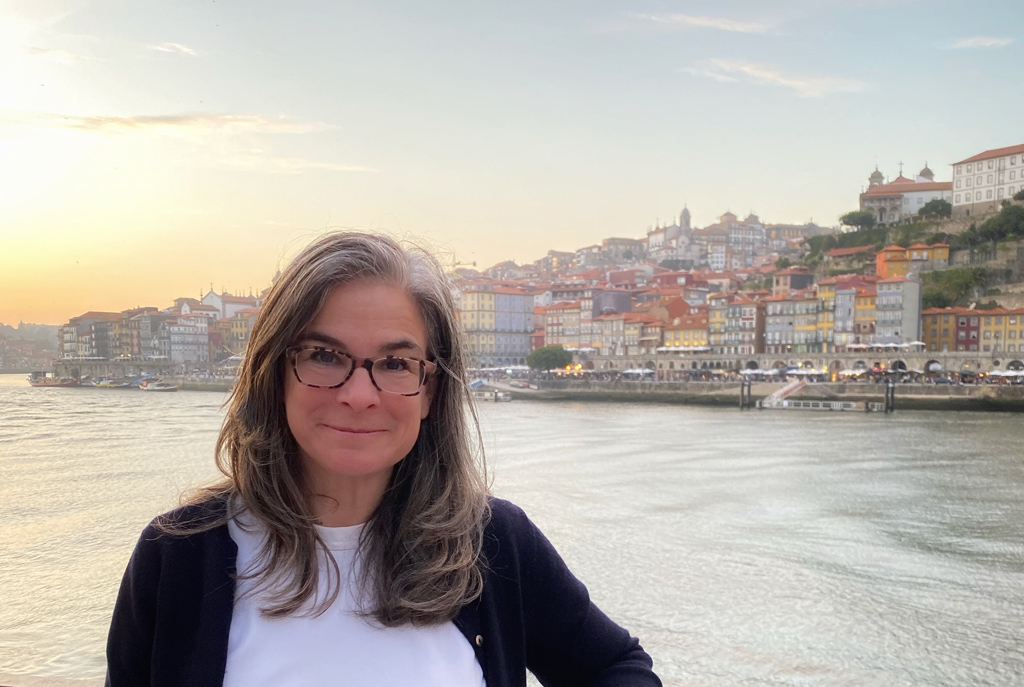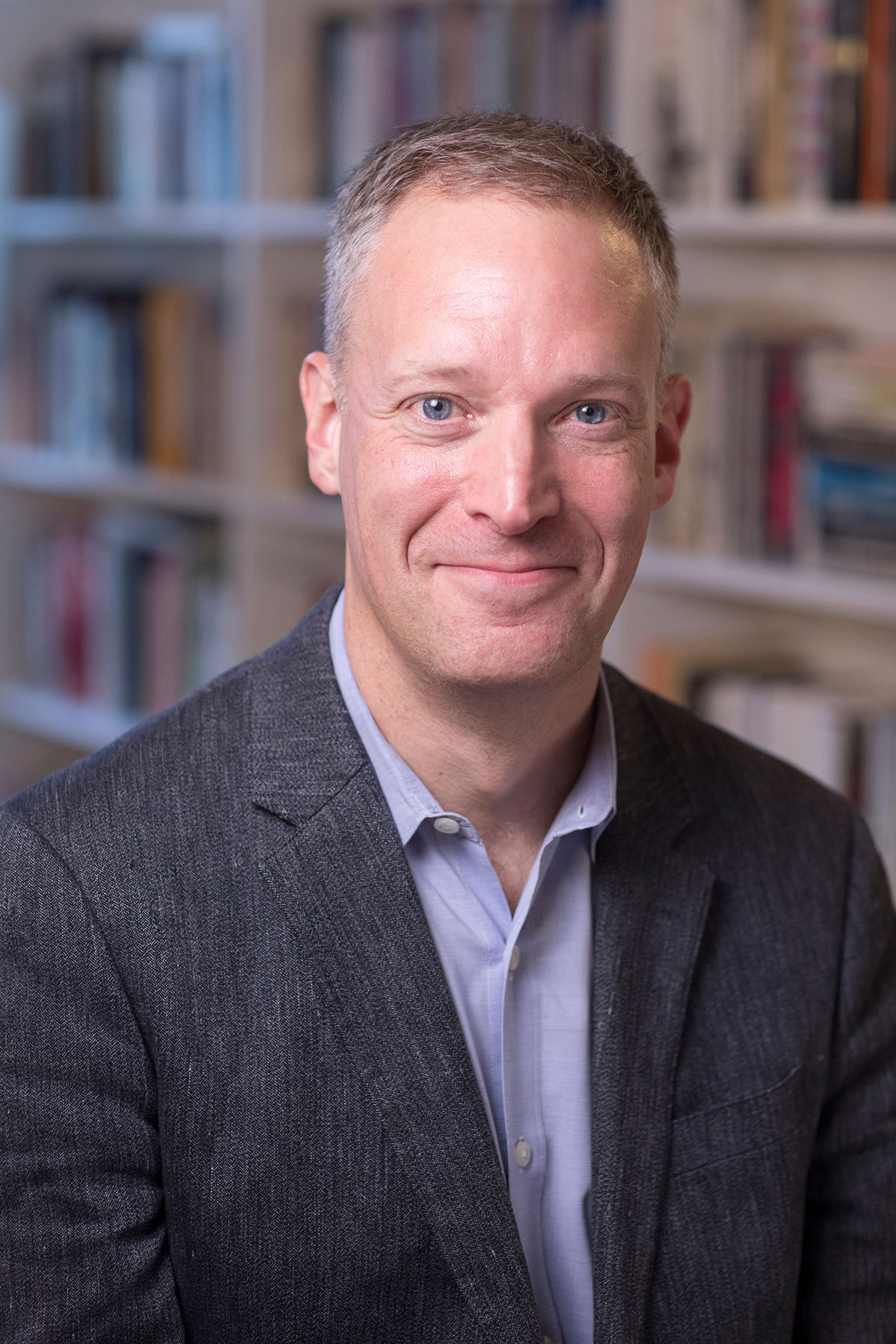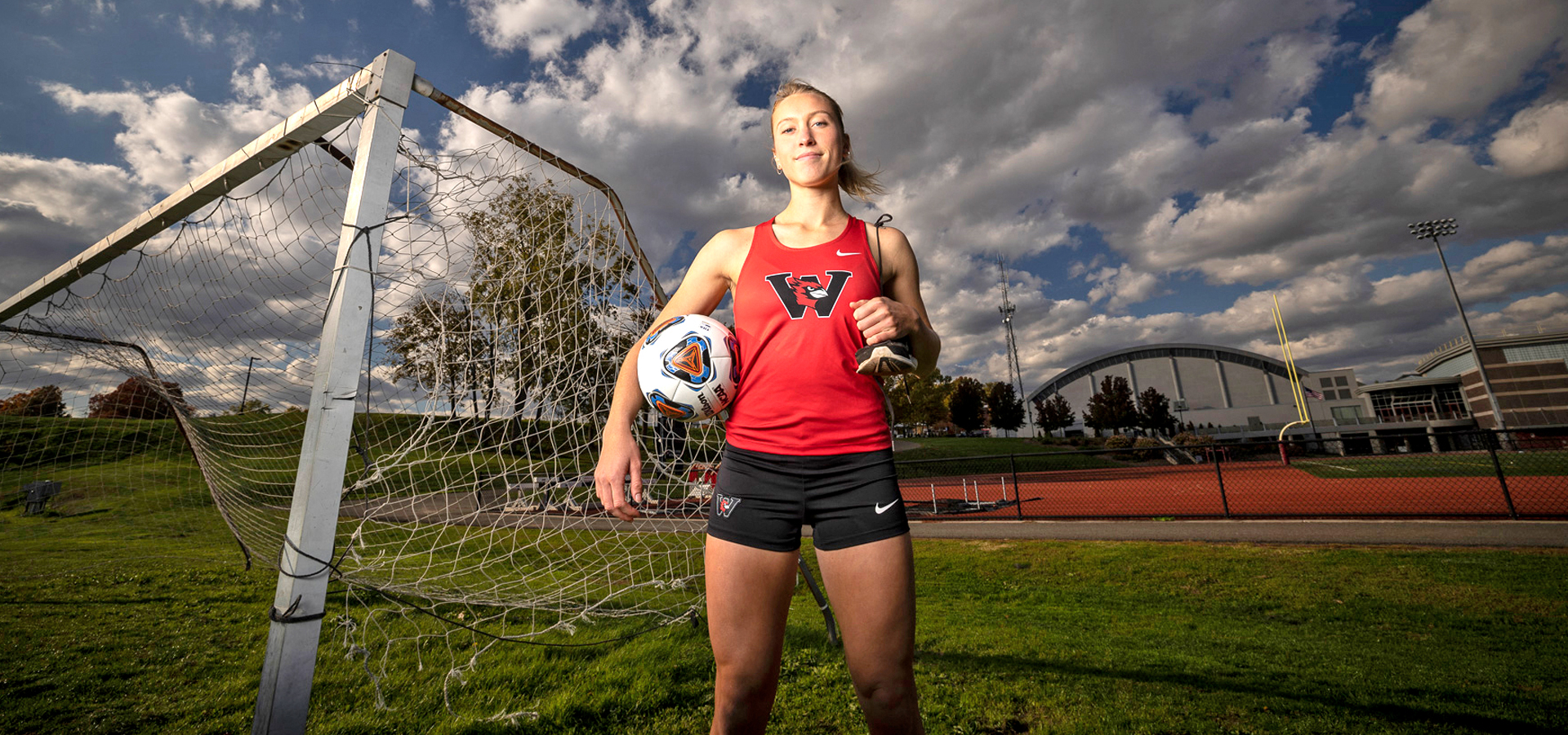The Truth About Travel

Pauline Frommer ’88 could fill several books with stories from her many years exploring the world and working at the forefront of the travel industry. In fact, she has.
All trips begin somewhere. Since 1957, many of them have begun with a trip to the bookstore to pick up a Frommer’s Travel Guide. That was the year Arthur Frommer published the first of what would eventually become millions of guides sold to itinerant audiences around the globe.
Things today are a little different. For one, it would be tough to do Europe on $5 a Day, as one of Frommer’s early titles suggested. For another, the internet has fundamentally altered the way people plan trips, and not always for the better. As co-president of Frommer’s and editorial director of both books and Frommers.com, Pauline Frommer ’88 has spent much of her career working to cut through the online morass of paid promotions and poor advice to offer fellow excursionists carefully crafted, authentic insight into countless far-flung destinations.
An intellectual history major at Wesleyan, Frommer sees the travel industry and the world with great perspective. Here, she shares her thoughts on both, including her favorite travel destinations, the increasing importance (and rarity) of good journalism, and the tension between travel’s ability to combat nationalism and the threat the industry poses thanks to climate change.
Can you describe your career arc and how you’ve gotten to where you are today?
Pauline Frommer: I was an actor for about a decade, touring the country with Les Mis and doing shows off-Broadway. But I wasn’t happy with it. I’d always written a lot—a bit for the Argus and my high school paper—so, I began helping my father (Arthur Frommer) to start Frommers.com. No one knew anything about the internet in the late 1990s, so the fact that I’d been working as an actor didn’t matter much.
Eventually, I became the editor-in-chief of Frommers.com, and also worked at MSNBC.com as their travel editor before being lured back by the then-owners to start the Pauline Frommer guides. Finally, through a series of strange steps, my father and I were able to reacquire the Frommer Guides and we are now the publishers, and I am the editorial director. And I do two radio shows for WABC and Radio America.
How do you think about your business today, amid a fragmented media environment, and the work that you do on a tactical level?
PF: We proudly practice travel journalism. I used to tell people that we hire the best writers from the local magazines and newspapers, who then cover the destination they live in. Now I say we hire the best writers who used to work for the local magazines. We’re proud (and saddened) to be giving a lot of out-of-work journalists work.
It feels like there’s this huge mountain of travel information out there thanks to the web. A lot of it is disguised marketing. When you’re taking advice from influencers, you’re taking advice from someone who was paid to tell you how great something is. When you take advice from TripAdvisor or Yelp, you run the risk of taking advice from marketers because Marriott and Hilton and many of those big companies have teams of people writing fake reviews. 60 Minutes recently did a segment on a man who makes his entire living from writing fake reviews, for example. You’re also often taking advice from someone who has gone to exactly one hotel or two restaurants in the destination, and may not know that a place right down the road is better and cheaper. Our writers will have that kind of insight. It’s an uphill battle, as it is for all journalists who are trying to prove the worth of journalism today.
Was that a decision you made very early on—to hire local writers to provide that authenticity and insight?
PF: We use a couple of what I call “parachute artists,” people who are such amazing writers and researchers that you can dive them into a country and they quickly find the essence of it. Since we took over the guides again six years ago, we really doubled down on using locals. You get a deeper level of information when you have people embedded in a place. But we’re going to be heavily affected because of Brexit. All over Europe, our English-speaking writers—in Italy, France, Spain, and Portugal, where it’s hard to find English-speaking writers—are Brits. Many of them are worried about whether they’ll be able to stay.
What is the value of the journalism you practice, especially in the digital era?
PF: We try to do deep research about how the travel industry is working, as well as cultural research on the destinations. We help people plan trips where they don’t spend too much (even on a luxury vacation), where they understand what they’re seeing and the context of it, and where they get the trip that will be most meaningful to them. That may mean doing a huge research project, as we just did, on which are the best search engines for airfares. Believe it or not, it’s a company called Skiplagged.com, which many probably have never heard of. Google Flights, for instance, didn’t even make it into the Top 10.
Or it may mean finding people or hotels or restaurants that speak to the zeitgeist of the destination, that have incredible history or a young chef doing interesting things with local cuisines. So many reviews online are often just a thumbs up or a thumbs down. We try to give our readers enough detail, as well as unexpurgated opinions, so they can create vacations that are meaningful for them.
Do you have favorite destinations you’ve covered?
PF: I’m always in love with the place I’ve been most recently. Lisbon has won my heart, especially knowing what the country went through under Salazar and seeing how vibrant it is now. Vietnam was a revelation. Having dug into both of their histories, and then seeing how alive and forward-looking they are is striking. I also write Frommer’s Easy Guide to New York City because I am a local and never stop exploring my hometown. I’m in a long-term love affair with New York.
What are some of the most profound lessons travel has taught you?
PF: I’ve discovered that there is no “me” through my travels. Travel has shaken my sense of self in a good way. For example, I’m 54 years old. In France, men still flirt with me (which I mention as a happily married woman). I’ve got that energy coming at me when I’m there. And when I go to Vietnam, the cab driver immediately asks me how old I am, I tell him, and he says, “Oh, like my grandmother!” He means it in a complimentary way, because getting older didn’t happen for many Vietnamese in the generation above mine on account of the war. Getting older is seen as something to be proud of in Vietnam.
What does the future of the industry look like? What does your crystal ball say?
PF: The future of our industry is going to be severely impacted by climate change, and I have to weigh whether or not I’m a good guy or a bad guy in that equation because of carbon emissions. On one hand, I see rising nationalism and that’s terribly frightening, and there’s no better antidote to that than travel. On the other hand, I see the damaging effects of travel. We were talking today, at a conference, about how we have to take a proactive role in our industry in combating climate change and working on new technologies that allow us to travel without heavy emissions. We need to be working as a global community and influencing our governments to fund research that, in a couple of years rather than 40, will make sure planes run on renewable energy.
In my most idealistic moments, I think by showing people the world in a thoughtful manner, we can work toward becoming a global community. Because the only way to combat climate change is as a global community, and right now we’re incredibly siloed. In my darker moments, I realize I might be part of the problem.
How did Wesleyan initially inform the work you’d go on to do in the travel industry?
PF: I was an intellectual history major at Wesleyan, a major I’m not sure exists anymore, which investigated how philosophy and the ideas that came out of it affected world events. I took wonderful classes with professors like Dick Vann and Henry Abelove, and became enthralled by Kierkegaard, who had a notion that human beings were both finite and infinite. You’re finite because you’re physically rooted in time and space. And yet you’re infinite because you have this extraordinary imagination that transcends your physical body. To me, that’s the miracle of travel—you suddenly get to be in a new time and space, and explore things that are so different from your daily life. You’re expanding and feeding the infinite part of you.
There was also no better major for my career than history because I go out into the world with an understanding of the forces that shaped what I’m seeing today. I still have a shelf of my textbooks and sometimes I’ll dip into them. Interestingly, I hated Machiavelli in college but now he makes a lot of sense.
Photo courtesy Pauline Frommer ’88


